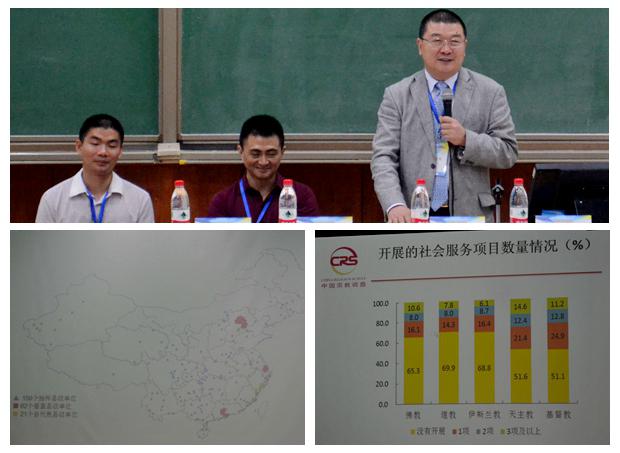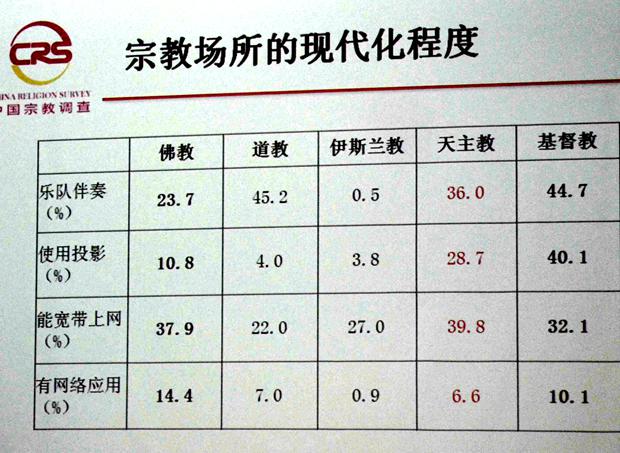Three famous religion scholars Wei Dedong, Wang Weidong, and Zhong Zhifeng from Renmin University of China made a report on Chinese religion on the 12th China Social Science Forum held on July 17th. Their report showed that Christianity is at the forefront of the five major religions in social services and modernization degrees.
Christianity is in first place in four data which manifest social participation of religions. In the survey on participation and support of other social group activities, the involvement rate of Christianity leads at first place with 37.2%, followed by Catholicism at 34.4%, in the second place. On the number of social service projects, Christianity and Catholicism are about 50% respectively while the other three religions number to about 30%. For the number of volunteers in the workplace, the rate of Christianity is more than 70%, followed by Catholicism with more than 60%. When setting up social service institutions and projects, the sample and rating that Christianity takes up is more than 55%.
In another survey on the modernization degree of worship places, Christianity places first in the comprehensive aspects of band sound, using the projector, broadband access to the Internet, and network application.
In terms of faculty salary, the ratio of female priests, and education of the faculty, Christianity leads the way as well. In the survey on the average salary the worship place offers the faculty, the largest amount is Christianity at 656.8 RMB. "The faculty of some religions such as Catholicism and Buddhism eat and live in the place of worship, thus their wages are lower," Zhong Zhifeng explained. Christianity also leads the way in the survey on female faculty and female believers. In the survey on the faculty's degree of education, 43% of the Catholic faculties and 13.2% of the Christianity faculties have been to college or higher education.
According to China Religion Survey(CRS) website which is one of the most important routine investigation items of the Network Startup Resource Center in Renmin University of China, CRS is the first academic social survey project which strictly performed according to the principles of probability sampling and reflects the religious status and development trends from many perspectives such as individuals, organizations, and regions in our country.
The survey extracts 243 PSU and 4,382 places of worship as samples in 31 provinces, cities, and autonomous regions using the method of Probability Proportionate to Size Sampling in various stages. The sample is a representative on a national scale. The interviewees include official in charge of the religions and theheads of the religious places.
There are four features of the survey. First is a questionnaire which faces the internation that is based on the local community. Second, the survey covers one-tenth of the population in our country, including minority regions and large Religious County. Third, the survey has a thorough investigation of the five major cities of our country, namely Beijing, Shanghai, Guangzhou, Shenzhen, and Tianjin. Fourthly, it focuses on the four features of the worship places, i.e. organizing principles, religious principles, sociality and political natures.









